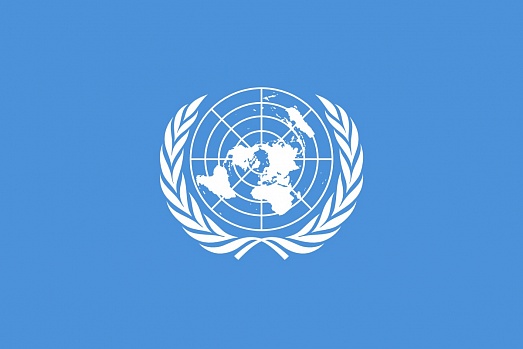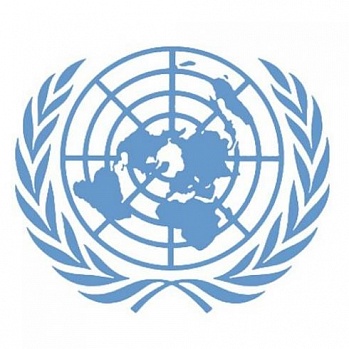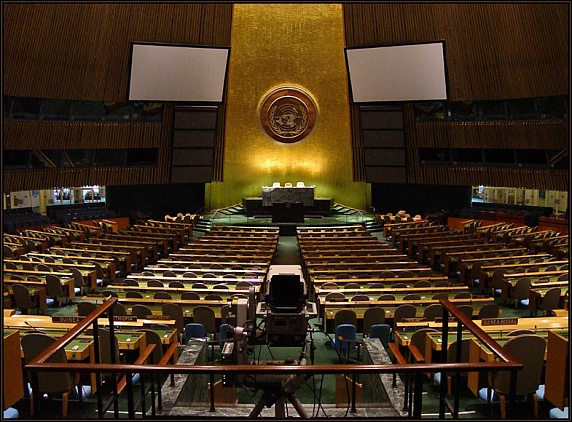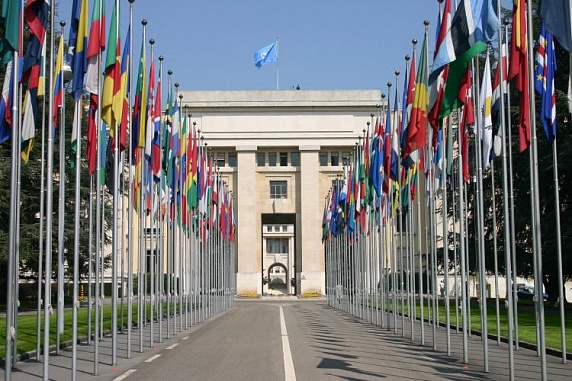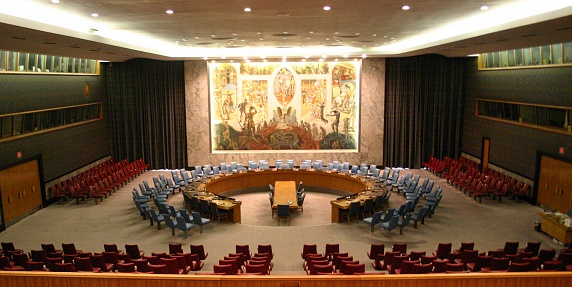 Die UNO
Die UNO
RUSSIAN DEPUTY MINISTER OF FOREIGN AFFAIRS YURI FEDOTOV'S INTERVIEW WITH ITAR-TASS NEWS AGENCY ON WMD PROBLEMS IN IRAQ
Unofficial translation from Russian
Question: In March it will be a year since the beginning of the military operation against Iraq. Can it now be said that this operation was a mistake?
Answer: Our assessment of the military operation against Iraq, unapproved by the UN Security Council, as a big political mistake remains valid. But now it is necessary to jointly think of how to get out of this situation. How to solve the Iraq problem in accordance with the rules of international law and how to ensure the Iraqi people a better life.
The time since March last also bears out what we spoke of at that stage. The talk that the UN has exhausted itself and fails to cope with the present-day challenges and threats - the fears of a "UN crisis" have turned out to be exaggerated. As life shows, in the end, everything returns to the United Nations. And it is at present that the question is being discussed when and on what terms the UN can resume its work in Iraq.
Russia advocates that the organization play a leading, independent role in the settlement processes in that country, given its rich experience in the field of post-conflict peace-building.
Question: Russia wants international inspectors to resume their work in Iraq as soon as possible to clear up the Iraqi WMD issue. Does this make any sense, for the inspections will not change the situation in Iraq itself?
Answer: It does. First: the mandates of the UN inspectors, whose tasks were set by the Security Council, have not been completely fulfilled. UNMOVIC is continuing to work and submit reports to the Council each quarter. A legally and politically ambiguous situation is emerging, where, on the one hand, the sanctions against Iraq are lifted, and these sanctions were tied precisely to weapons of mass destruction, and the bodies that are concerned with weapons of mass destruction continue to operate. We need to close the books on this.
Second: Iraq was indeed engaged in the development of weapons of mass destruction. A part of those weapons, perhaps also all of them, was at a point in the past destroyed either by the Iraqis or under the control of international inspectors. The question is, are there any prohibited components for development left in Iraq? The US commission led by David Kay has concluded that such traces have not been discovered. If this is so, then anyway it is necessary to confirm this conclusion by the authority of international inspectors. If in Iraq there are still left, even if not such a significant quantity, some prohibited types of weaponry and their components, then there is the risk of their getting into the hands of terrorists and extremists. Such a possibility needs to be put a stop to.
Question: How much time is required for the work of the international inspectors to definitively clear up the question of Iraqi WMD?
Answer: The period of time can be very short. But I want to once again stress that it is not a question so much of the return of international inspectors to Iraq as of giving them the possibility to complete their mandate. That might not require their presence directly in Iraq.
The most important thing is that any finds relating to weapons of mass destruction, or none at all should be certified by independent international structures.
Question: How realistic is it, in your opinion, to create a lawful Iraqi leadership by the start of the summer of this year?
Answer: Of course, it is possible to create a new government in Iraq. The question is, to what extent this government will be legitimate and in what measure it will be supported by the Iraqi population and enjoy the support of the international community. That's why it would be important that the process of the formation of new power structures in Iraq should pass with the active participation of the UN. I want to once again stress that the United Nations should play an independent role and have its own strategy for dealing with the Iraq question.
Question: Do you think the worldwide recognition of the fact of there being no WMD in Iraq will entail very adverse consequences?
Answer: This cannot be ruled out. We should not forget that when the military operation was undertaken against Iraq, most countries of the world came out against that.
Question: How will Russia be tackling the question of Iraq's debt in the future?
Answer: As to Iraq's debt, we got all the necessary clarification after the visit to Moscow of the chairman of the Interim Governing Council of Iraq and his meeting with President of the Russian Federation Vladimir Putin. Russia has confirmed its willingness to tackle the question of Iraq's debt in accordance with the rules of the Paris Club, of which it is a member. This presupposes a considerable easing of the debt burden, but also a confirmation on the Iraqi side of its debt obligations.
According to the Paris Club rules, moreover, it may be a question of a postponement of payments and of a debt restructuring, but this question has to be decided with Iraqi authorities, with the lawful government of that country.
Question: It is no secret that there exists the problem of a "black market" of nuclear weapons. Views are being expressed that international structures weakly control this process and that there exists the serious danger of weapons of mass destruction getting into terrorist hands. What measures does Russia suggest for adoption in order to prevent that?
Answer: The danger of WMD getting into terrorist hands is a real threat. President of the Russian Federation Vladimir Putin spoke of this in his speech at the 58th session of the United Nations General Assembly, along with other leaders. There is in the UN the understanding that before it is too late, it is necessary to take measures which would rule out the getting of WMD into the hands of terrorists and extremists.
The question is one of states assuming additional commitments to prevent WMD from getting into the hands of this kind of nonstate extremist structures. In principle they are already duty-bound to so do, but in today's conditions these commitments need to be reinforced. We think this can be done by employing the authority of the United Nations Security Council.
Consultations are now going on in the Council on this question and I hope that it will soon be possible to agree a common line aimed at eliminating that threat. It is not ruled out that an appropriate resolution may be passed.
Question: Perhaps a resolution should be adopted which would guarantee North Korea, on the one hand security, and, on the other, would demand that Pyongyang implement the conditions the international community sets forth for the settlement of the North Korean nuclear problem?
Answer: The nature of the so called North Korean nuclear problem is such that it is better to address it in the present format of six-way talks. It is necessary to arrive at coordinated agreements between the participants of this process on the full range of questions relating both to the denuclearization of the Korean Peninsula and to security guarantees and the provision of conditions for the economic development and prosperity of all the countries. In today's circumstances, raising this question in the United Nations Security Council would hardly help its solution.
February 6, 2004
